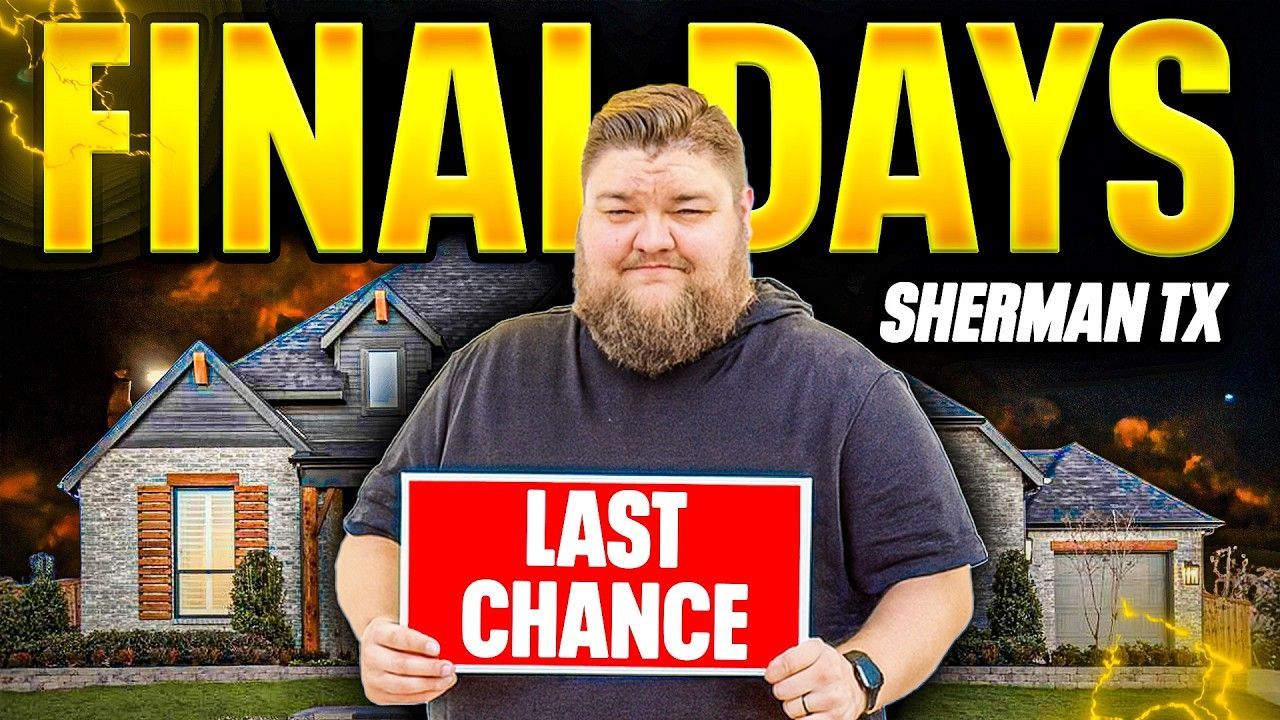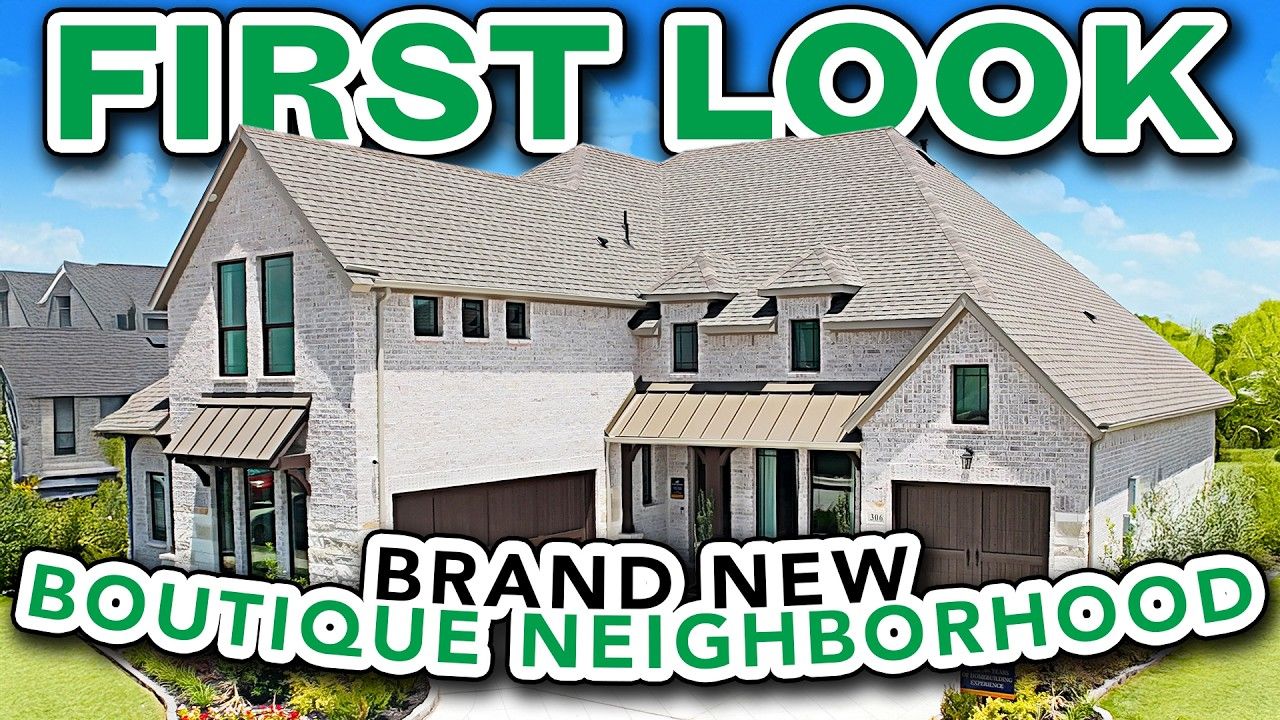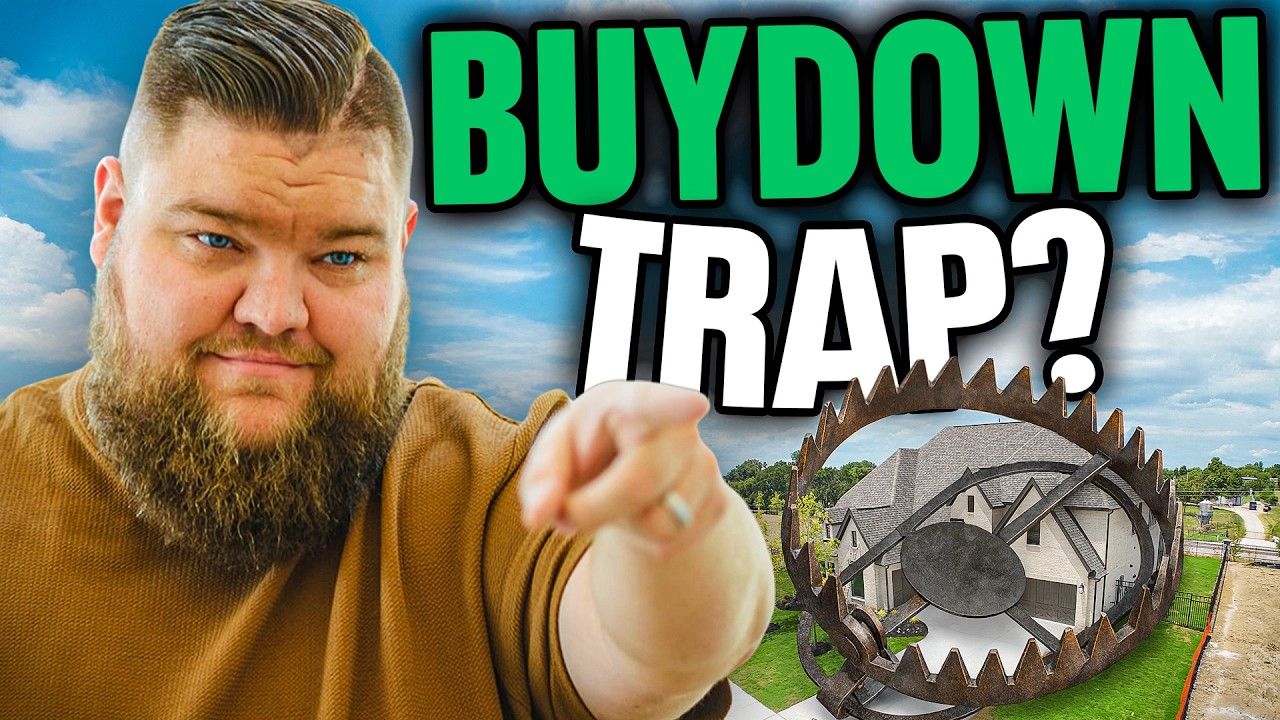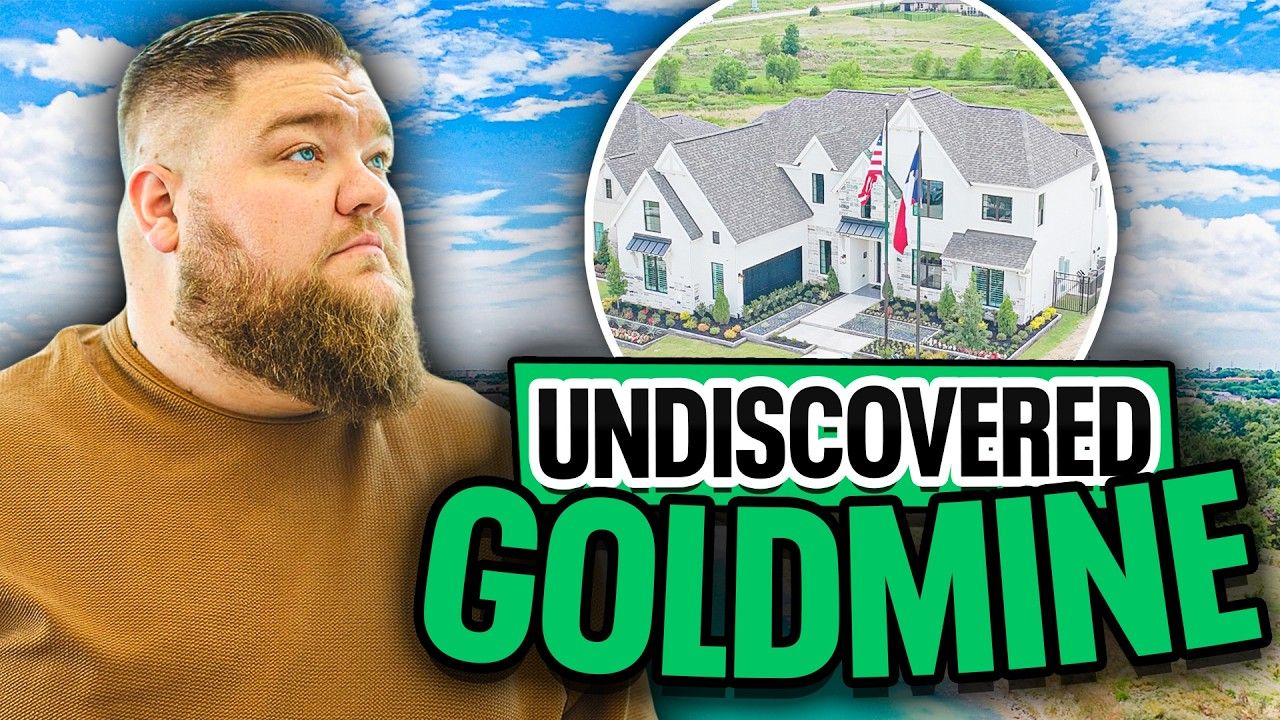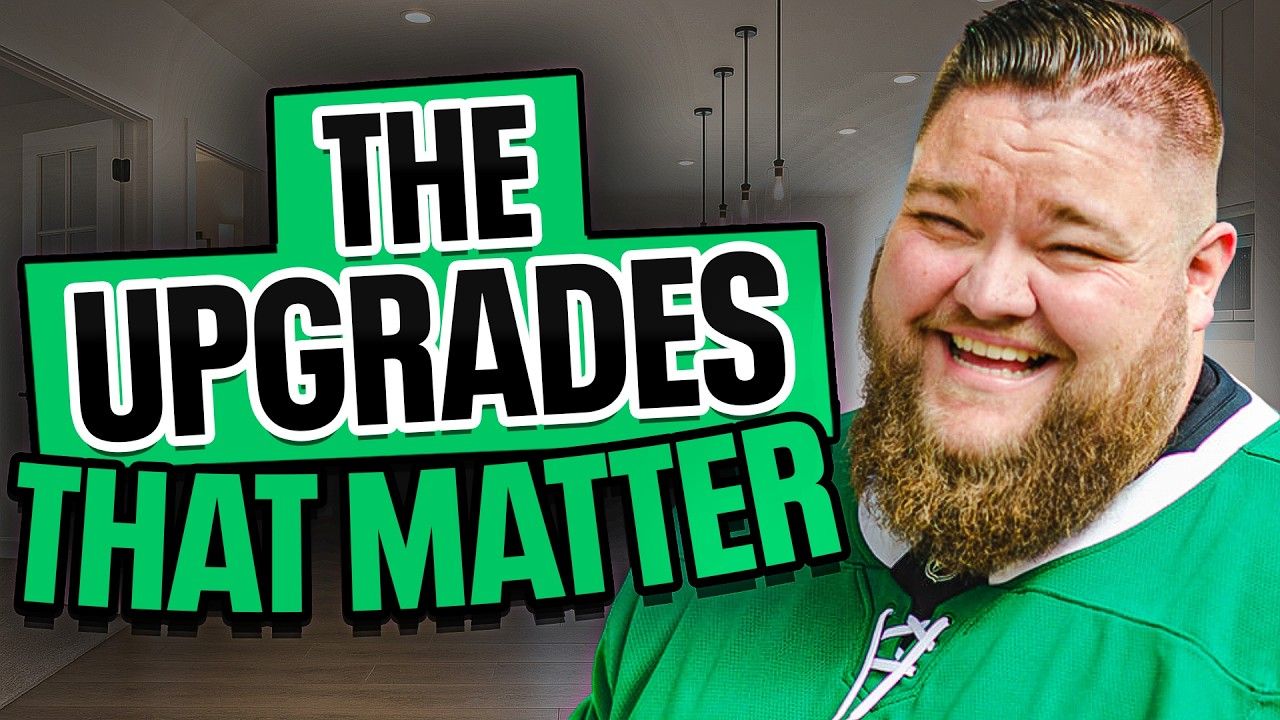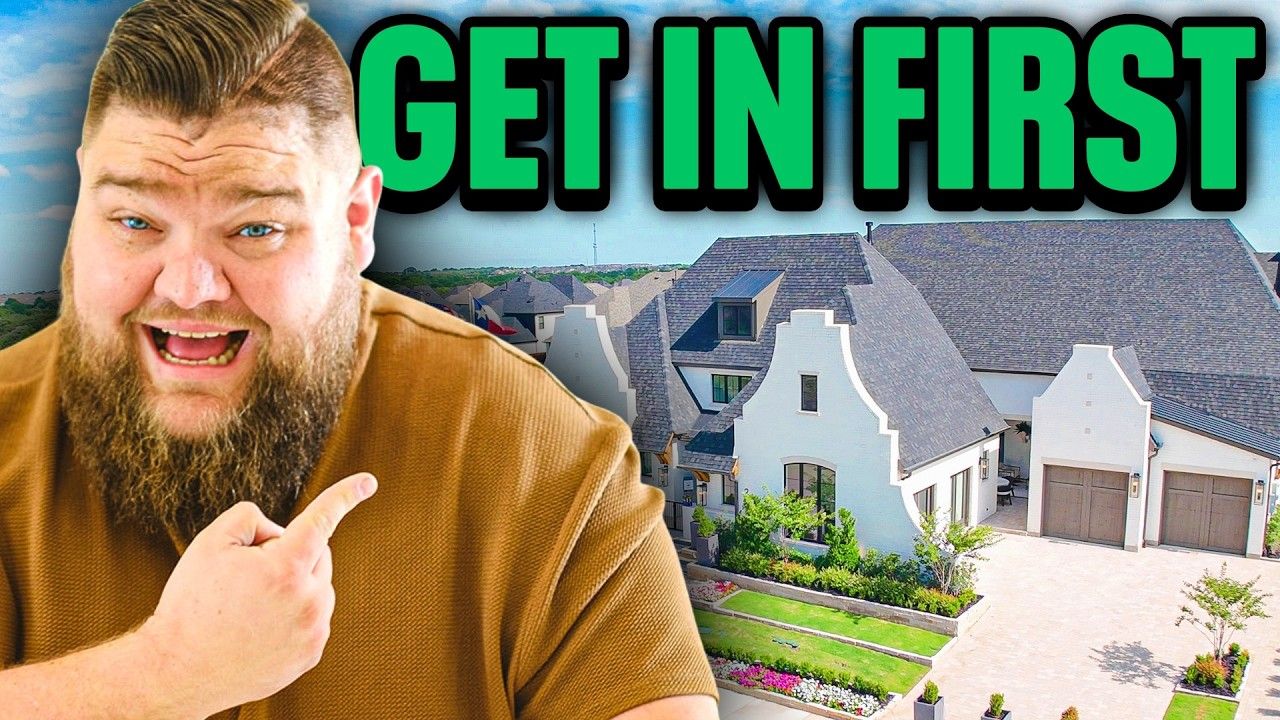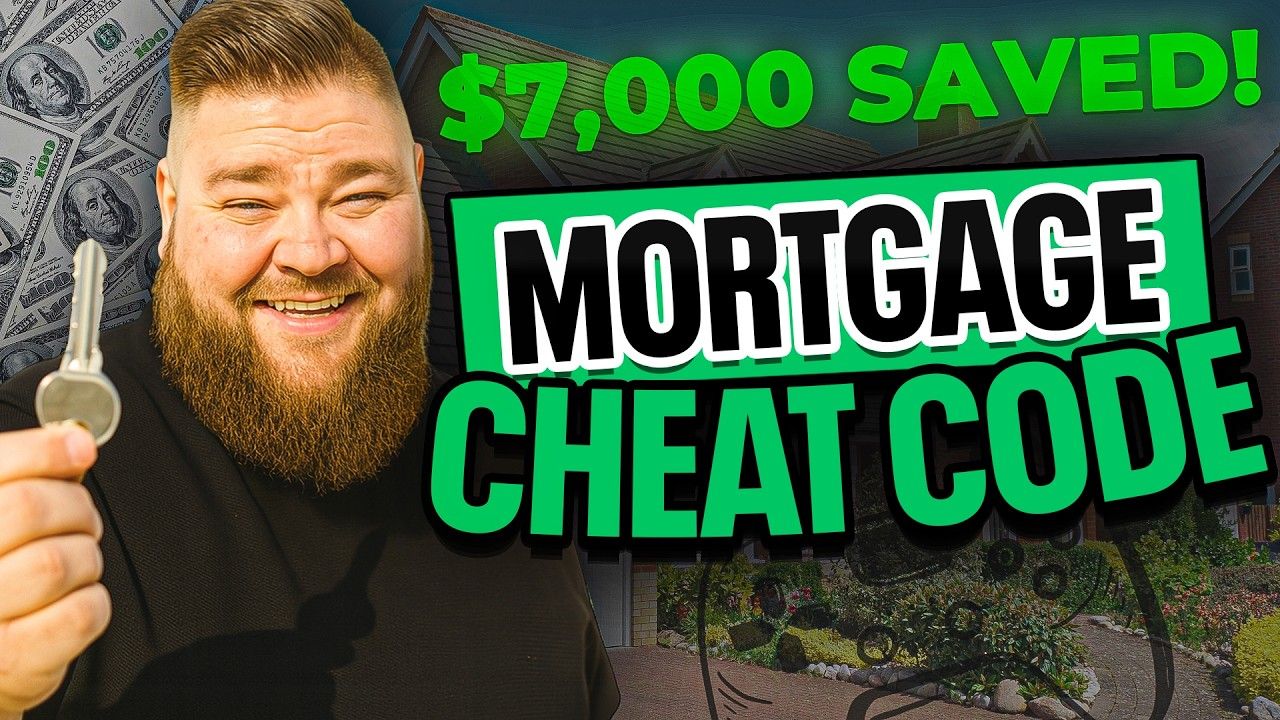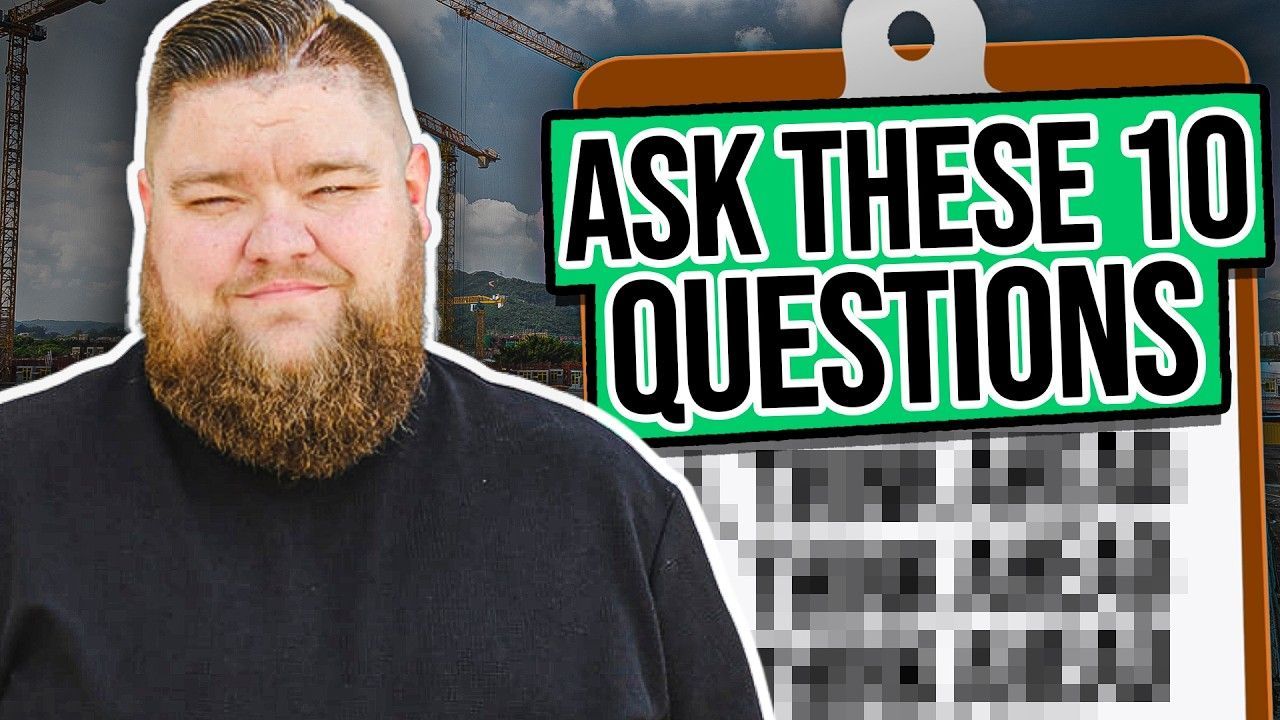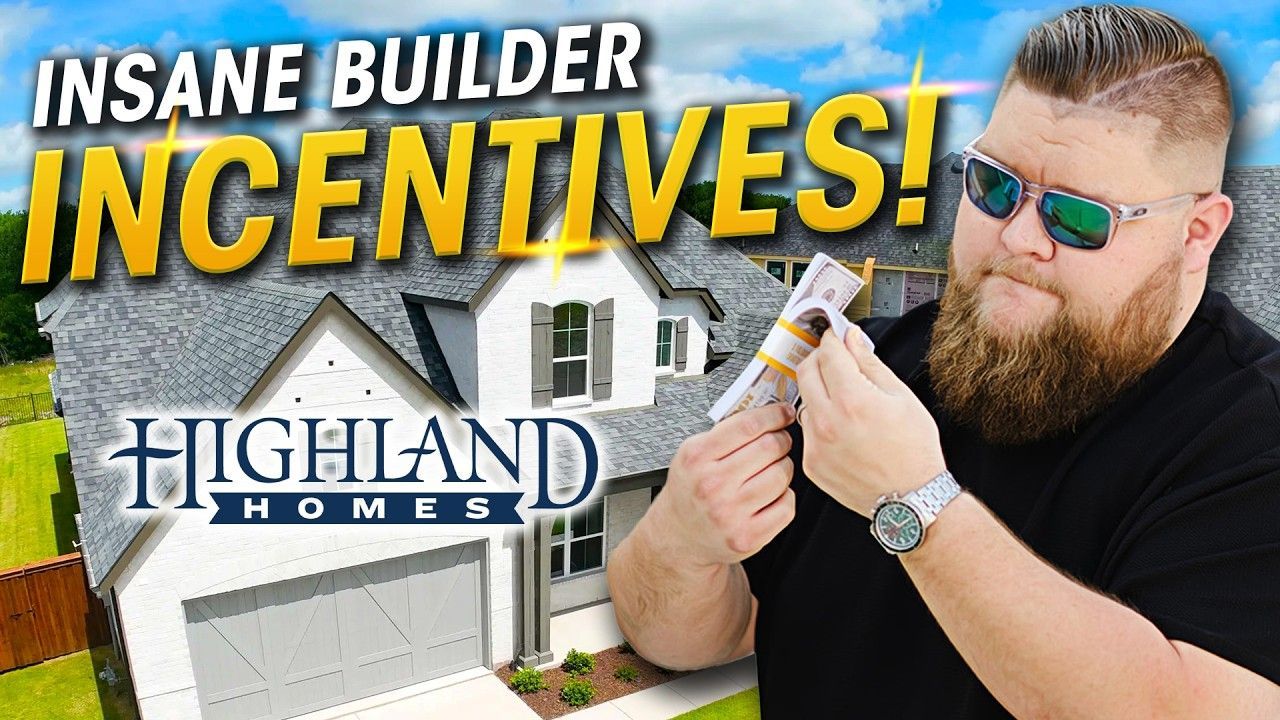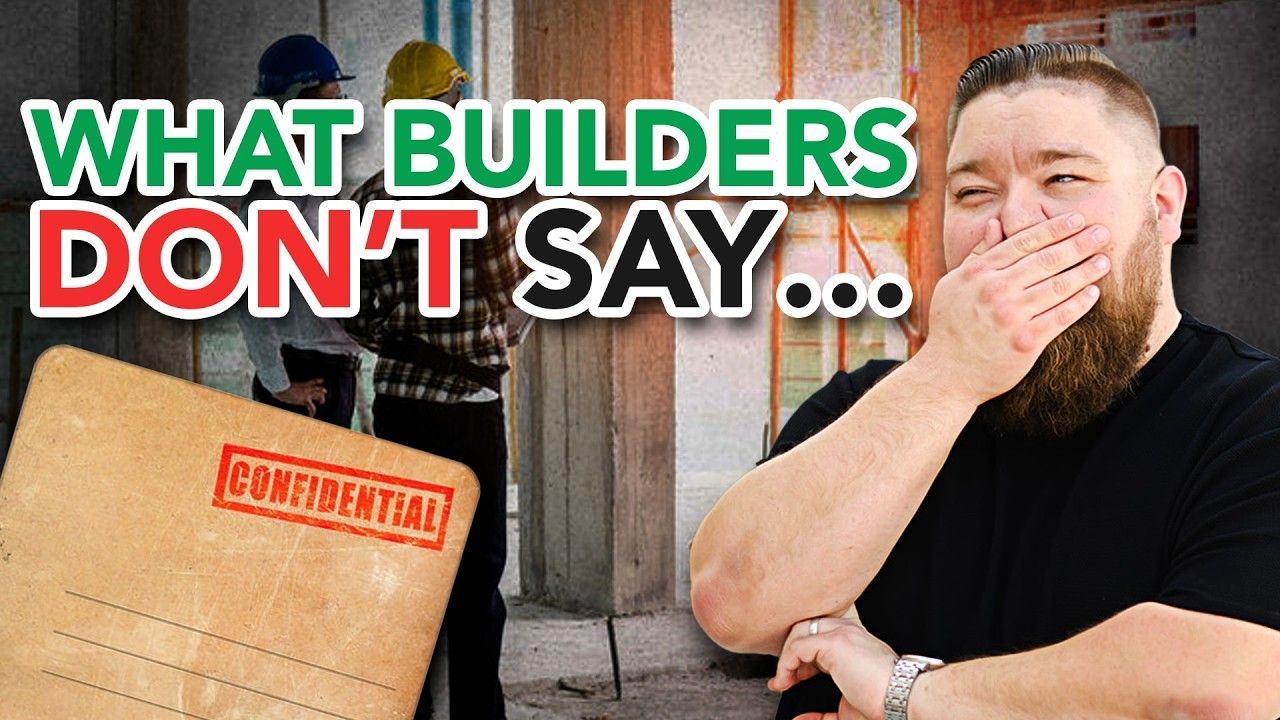Buying a New Construction Home in Dallas Fort Worth
If you watched my video, you already know I believe some of the best opportunities to buy homes right now are in new construction — and I stand by that. But as someone who sells new construction real estate in the DFW market every day, I also want to give you a frank, practical look at buying new construction homes in Dallas Fort Worth. This article expands on the honest conversation I started there: the trade-offs, the surprises, the things builders won't always shout about, and the real strategies you can use to protect your investment and your sanity.
Table of Contents
- Why I’m Talking About the Hidden Realities of New Construction Homes in Dallas Fort Worth
- Cookie-Cutter New Builds in DFW
- Inventory Home vs. Building from Scratch: Know the Real Costs of New Construction Homes
- The Rental Fallback is Not Always a Cash-Flow Win
- Warranties in New Construction Homes in Dallas Fort Worth: Baked In but Painful to Use
- Builder Profit Centers: Where the Extras Add Up?
- Neighborhood Growth: Construction, Promises, and Delays
- Emotional Disconnection: The Social Cost of Early Move-In
- Practical Steps to Protect Yourself from New Construction Homes
- How to Differentiate Your Home for Resale vs New Construction Homes
- FAQs About Buying a New Construction Home in Dallas Fort Worth
- Final Thoughts on New Construction Homes in Dallas Fort Worth
- Next Steps in Buying New Construction Homes in Dallas Fort Worth
Why I’m Talking About the Hidden Realities of New Construction Homes in Dallas Fort Worth
New construction is where I do a ton of my business. I’ve bought and built multiple new homes personally and helped hundreds of clients do the same. I love the opportunity — the upgrades, the warranties, the modern floorplans, the energy efficiency. But I also see patterns that catch buyers off guard. So when I say “hidden realities,” I mean the things that aren’t always obvious in a cursory walkthrough or pretty model home: resale dynamics, warranty processes, builder profit strategies, construction disruption, and the emotional side of moving into a budding neighborhood.
Throughout this article I’m going to call out those realities, give real examples, and offer practical, actionable steps you can use if you’re considering buying new construction. I’ll also show you how to make the math and the lifestyle fit your family’s goals.
Cookie-Cutter New Builds in DFW
One of the first things I want you to understand is how many master-planned or quasi-master-planned communities in and around Dallas Fort Worth are being built — not by five or six different builders — but by two, sometimes just one. That creates neighborhoods where streets, exterior palettes, interior finishes, and even landscaping look almost identical.
Builders like Meritage and Trophy (and in some markets national builders like D.R. Horton) have shifted their model to production-heavy builds. They keep inventory on hand and close quickly — which is great for buyers who want speed and certain incentives. But there’s a real resale catch: when a neighborhood has a lot of identical inventory, the resale market can be brutal for a homeowner who needs to sell while the builder still has product on the market.
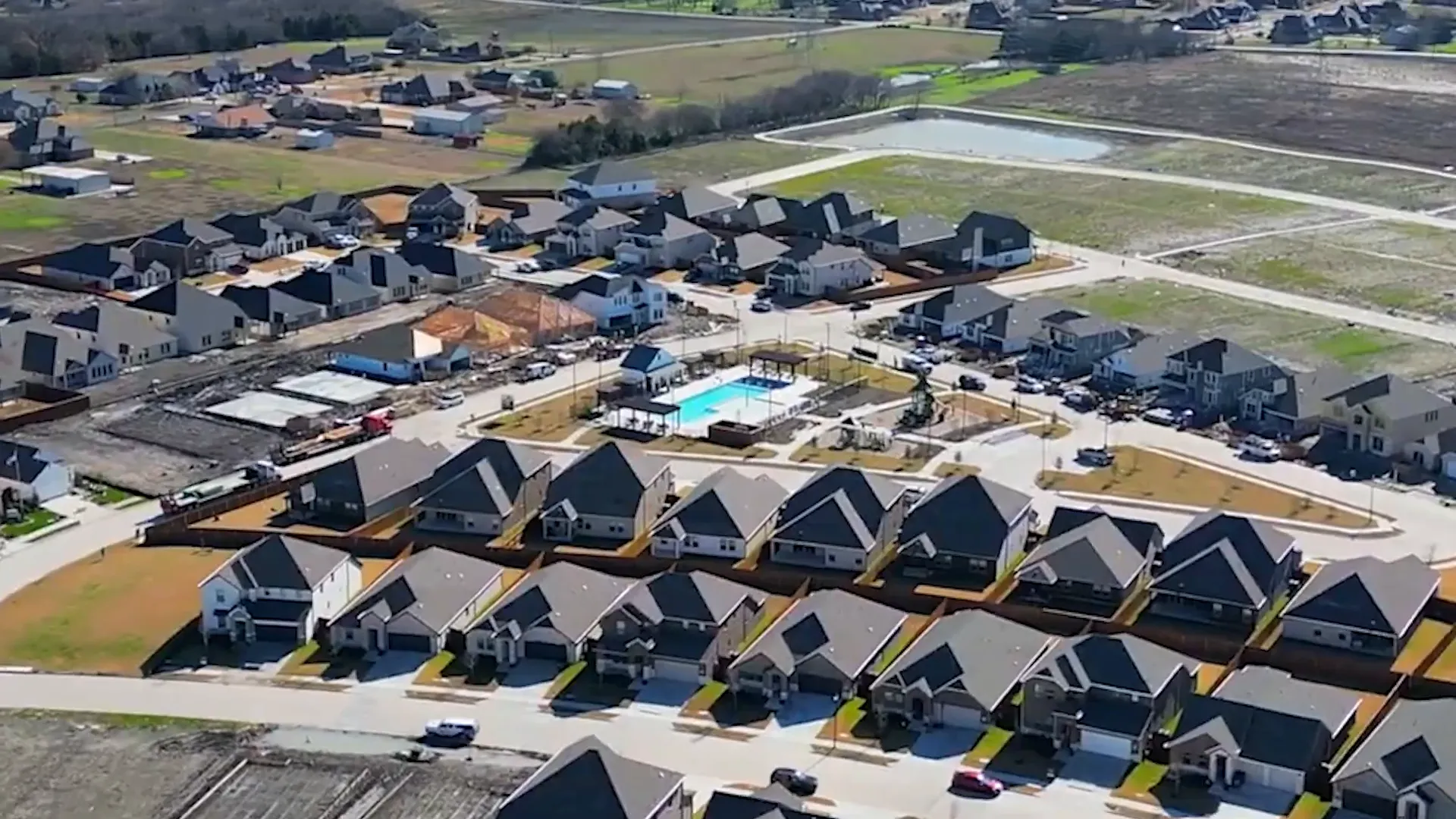
Why is this a problem? Let me give it to you straight: most Americans move within 3–7 years. If you buy into a community that’s still being actively sold by the builder, you’re competing against that builder’s inventory when you list. Builders can and will price aggressively to move product. If you bought with a minimal down payment and were attracted by introductory interest rates or builder closing credits, that margin that protects your resale value can be slim to none. In short — be prepared for pricing pressure when you try to sell.
VIEW MORE NEW CONSTRUCTION HOMES FOR SALE IN DFW
Real example
I was recently at a dinner with a family friend in another market who bought from a builder that essentially owned the neighborhood. They listed 18 months after buying and had zero showings for weeks. The builder had a block of 10 inventory homes on the same street. The family had put down a small deposit and simply didn’t have the price flexibility to compete with builder markdowns. That story is not rare — it’s a recurring pattern.
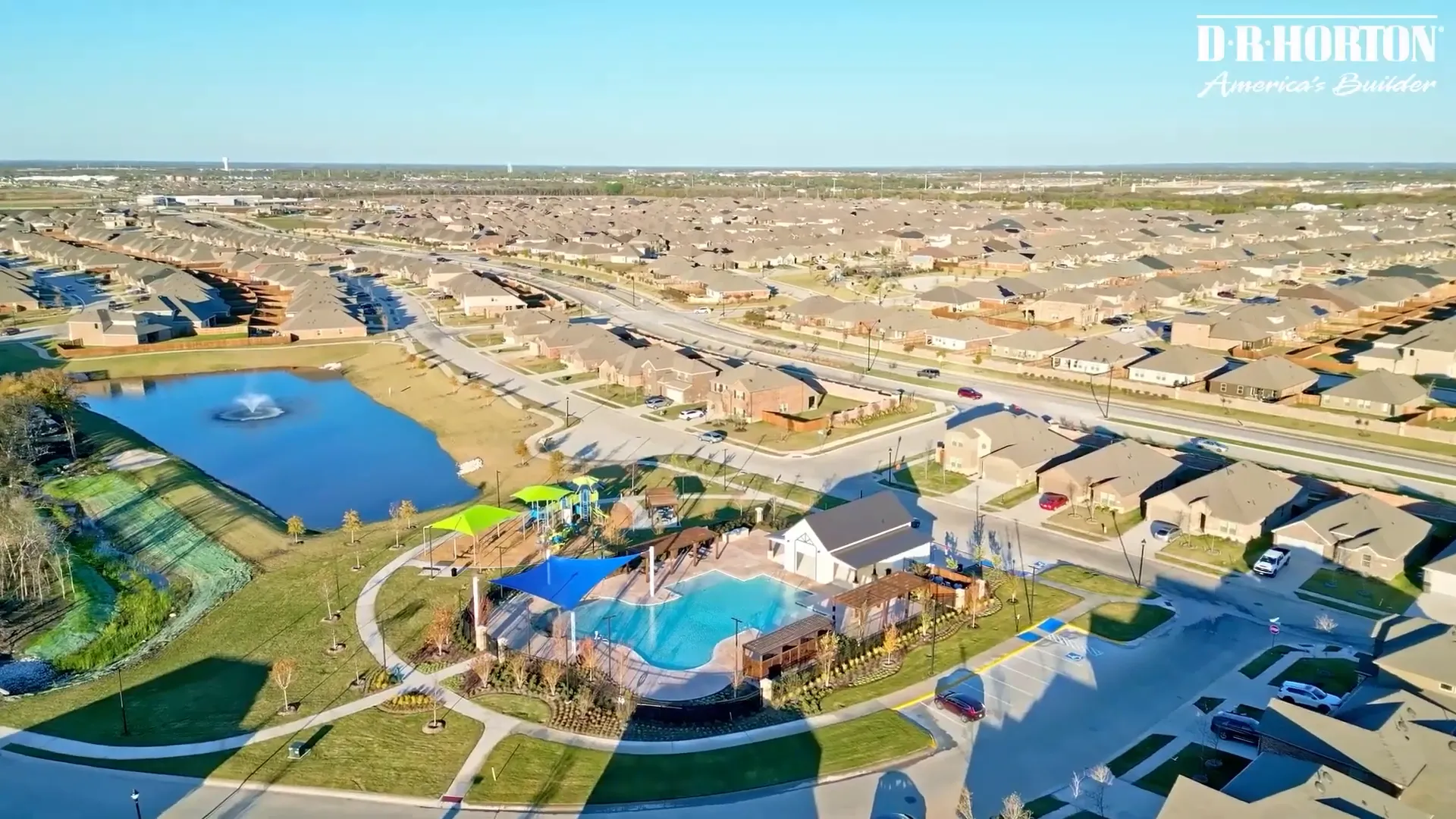
Inventory Home vs. Building from Scratch: Know the Real Costs of New Construction Homes
There are two common new construction paths: buy an inventory (quick-close) home or build from the ground up. Both have pros and cons, and both hide costs if you don’t look closely.
- Inventory homes are usually easier to price because the builder has already set the features and the incentives. What you see is often what you get — and in many cases those prices are negotiable, depending on market conditions.
- Building from scratch gives you customization but comes with lots of line items: lot premiums, upgrade packages, structural options, and change orders. Builders are running a business and margins are found in upgrades and premium lots.
If you’re building, expect the base price to be an opening number — seldom the final number. Lot premiums can be significant, and they often reflect the money the builder paid the developer for premium placements like corner lots or lots backing to greenbelts. Don’t assume everything’s included; always get a clear list of what’s standard and what’s extra.
The Rental Fallback is Not Always a Cash-Flow Win
A lot of buyers tell me their backup plan is to convert the home to a rental if they need to move. That makes sense on paper — hold the asset, collect rent — but in real life it’s not that simple.
Here are the hidden realities:
- Because of low barriers to entry in many new neighborhoods, other owners often have the same idea. That means competition on the rental market — and downward pressure on rents.
- If you’ve put a small down payment on a high-interest loan, rising property taxes or insurance costs can crush cash flow estimates. The numbers that looked okay when you bought can look very different a year or two later.
- Rent growth is not guaranteed. Local supply and demand dynamics (including an influx of rentals) can cap rent increases.
- Investing in property management, repairs, and vacancy expenses often reduces the “passive” benefit people imagine.
If your fallback plan is renting the property, do these things now: run conservative rent projections, estimate vacancy and maintenance, and calculate worst-case monthly cash flow. If that scenario doesn’t work on paper, renting may not be a reliable safety net.
Warranties in New Construction Homes: Baked In but Painful to Use
New homes usually come with warranties, and that’s a major selling point. But warranties are not a magic bullet. They protect against defects, sure — but the process to get repairs done can be slow, bureaucratic, and frustrating.
Each builder handles warranty differently. Some do a great job tracking and fixing issues quickly. Others are slow to respond and harder to work with. Remember: “new” does not equal “perfect.” You will find punch-list items. You will call the warranty department. Be prepared for follow-ups. And if you care about how the builder handles warranty work, ask for references. Drive through older communities built by the same builder and talk to homeowners about their experience before you sign.
Builder Profit Centers: Where the Extras Add Up?
Builders are businesses. Their goal is to make money, and that profit shows up in certain predictable areas:
- Lot premiums (the price for corner lots, premium views, cul-de-sacs)
- Upgrade packages (kitchen upgrades, flooring, built-ins)
- Structural options and design center choices
When you see a beautiful kitchen in a model home, know that the builder is selling that as an upgrade. They aren’t building the model for free. Understand what’s included in the base price and log everything that is an upgrade. If you’re not careful, the final contract can balloon. If you prefer certainty, an inventory home often has the finished features baked into the price and may be less susceptible to surprise change orders.
Neighborhood Growth: Construction, Promises, and Delays
Buying in a new neighborhood usually means buying into a future, not a finished reality. Roads, parks, schools, pools, and retail may be promised on brochures — but these things take time to build. Expect ongoing construction, noise, early-morning concrete pours, and occasional surprises.
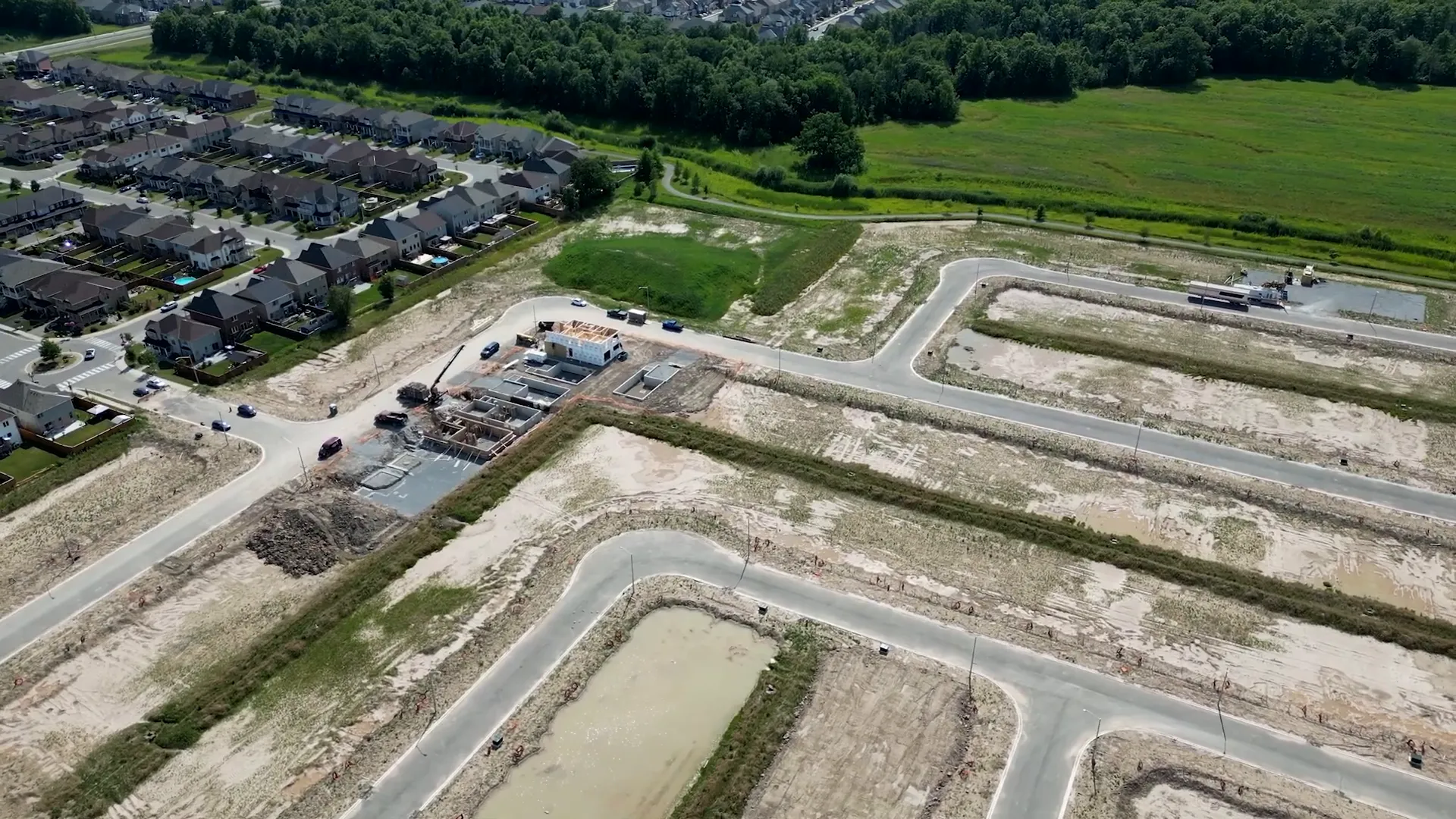
Examples of the practical impacts:
- Traffic detours and dust for months or years
- Delayed school openings or school rezoning as the neighborhood fills
- Amenities that are promised but not yet built — or built later than advertised
If amenities are a major reason you are buying, ask for timelines and get commitments in writing where possible. Better yet, visit a finished community built by the same builder and see how the amenities materialized 2–3 years after build-out.
Emotional Disconnection: The Social Cost of Early Move-In
This is the human side of the equation. Moving into a neighborhood that’s still under development can feel isolating. You may love the house but find only a handful of neighbors living nearby at first. That’s normal, and it can feel weird.
If community matters to you, be proactive. Don’t wait for the neighborhood to “magically” form a social fabric. Start a neighborhood Facebook group, volunteer for the HOA, throw a block party, organize a kids’ playdate, or create a parent WhatsApp group. If you lead, others will follow. If you don’t want neighbors, that’s fine too — just know the reality up front.
Practical Steps to Protect Yourself from New Construction Homes
New construction is not a bad choice — far from it. But you should buy it knowing the realities and preparing for them. Here’s my checklist if you’re considering a new construction purchase in Dallas Fort Worth:
1. Plan to stay or calculate for an aggressive resale
- If you may sell within 3–7 years, expect competition from builders. Either plan to stay longer or be prepared to price competitively and market aggressively.
2. Drive through the builder’s older communities
- See how the builder’s work ages 2–3 years post-construction. Talk to homeowners about warranties, finishes, and HOA issues.
3. Get clarity on what’s included
- Make the builder itemize standard features vs. upgrades. Get lot premiums and option prices in writing.
4. Understand the warranty process
- Ask how warranty requests are logged, expected timelines for fix, and whether there’s a third-party inspection or a one-year builder walk-through.
5. Run conservative rental numbers (if renting is a possibility)
- Model worst-case rent, vacancy, insurance increases, taxes, property management fees, and maintenance. If the numbers don’t work conservatively, don’t count on rental cash flow as a safety net.
6. Budget for disruptions and initial landscaping
- Expect construction noise, curb/road work, and that trees and yards will take time to mature. Plan for temporary landscaping and initial outdoor costs.
7. Get an agent who specializes in new construction
- A local agent experienced with builders will help you negotiate upgrades, spot contract traps, and advocate for timely warranty responses.
How to Differentiate Your Home for Resale vs New Construction Homes in Dallas Fort Worth
If you want to maximize resale potential in a cookie-cutter neighborhood, you have two realistic paths: differentiate now or price aggressively when selling.
- Differentiate now: Consider investments that add genuine perceived value: professional landscaping, unique exterior accents (stone veneers, tasteful paint choices where allowed), upgraded kitchen finishes that are popular with buyers, and smart-home features. Choose durable, neutral upgrades that appeal broadly.
- Price and market aggressively: If you can’t or won’t invest in differentiators, recognize you’ll need to accept competitive pricing and a stronger marketing effort when the time comes to sell.
When choosing upgrades, prioritize items that buyers notice and value: a high-quality appliance package, durable flooring, and an attractive outdoor living space are typically better investments than purely cosmetic trends that date quickly.
FAQs About Buying New Construction Homes in Dallas Fort Worth
Is new construction always a better value than resale?
No. Sometimes it is because you get efficiency, modern layout, and warranties. Other times resale offers a finished neighborhood, mature landscaping, and no construction noise. Value depends on timing, financing packages, and your personal goals.
Will the builder always undercut me when I sell?
They may, especially if they still have unsold inventory that competes with your home’s size and finish level. That’s why timing your sale after the neighborhood is mostly built or differentiating your finishes matters.
How much should I budget for upgrades when building?
Expect to add 5–15% (or more) over the base price depending on how much customization you want. Lot premiums can significantly increase cost, so ask specifically for premium-lot pricing.
Are all builder warranties poor?
No. Some builders are excellent at warranty follow-up; others are not. The warranty process itself is standard, but responsiveness varies. Research builder reputations, ask for references, and inspect homes built by the same company.
If I plan to rent, what is the single most important thing to check?
Cash flow. Run the numbers conservatively. Account for property management, worst-case vacancy, maintenance, taxes, insurance, and interest rates. If the conservative case doesn’t work, don’t count on renting to save you.
What’s the biggest resale risk?
Competing with builder inventory and minimal margin if you bought with heavy incentives and a small down payment.
Should I build or buy inventory?
Buy inventory for certainty; build if you want customization and can manage the added costs.
Are warranties trustworthy?
They’re helpful but not frictionless. Research builder responsiveness.
Will my neighborhood feel empty?
Maybe at first. Be proactive to build community.
Is new construction still a good opportunity?
Yes—if you go in with eyes wide open about the hidden realities.
Final Thoughts on New Construction Homes in Dallas Fort Worth
Let me close the way I started: I love new construction. My family has built multiple new homes, and professionally I help people do the same. I also want you to make a smart decision. buying new construction homes in Dallas Fort Worth are real, and they can affect your resale, cash flow, daily life, and emotional experience.
Be honest about your timeline. If you may sell in the near term, assume you’ll be competing with the builder unless the community is finished. If you plan to rent, run conservative cash flow. Don’t be surprised by upgrades and lot premiums — they’re a major part of builder profit. Expect warranties to exist but to sometimes be imperfect in execution. Anticipate construction noise and slow amenity rollouts. And finally, if community is important to you, be the leader who helps build it.
I want you to walk into a new construction purchase with open eyes and the information to make choices that fit your family and your finances. If you’re considering buying in Dallas Fort Worth, take the time to research builders, drive through older neighborhoods they built, get a breakdown of included vs. upgraded features, and run conservative financial scenarios for resale and rental fallback plans.
Thanks for reading — and if you want to keep the conversation going, reach out to a local new-construction specialist who will advocate for you through the contract, the build, and the warranty process. buying new construction homes in Dallas Fort Worth are manageable when you plan, ask the right questions, and have someone on your side who knows the terrain.
Next Steps in Buying New Construction Homes in Dallas Fort Worth
- Drive through a finished community built by any builder you're considering — see how the homes and amenities aged.
- Get an itemized inclusion list before you sign — and review it with an agent experienced in new construction.
- Run conservative rental and resale scenarios — don’t assume optimistic growth.
- Budget extra for initial landscaping and minor fixes after move-in.

Zak Schmidt
From in-depth property tours and builder reviews to practical how-to guides and community insights, I make navigating the real estate process easy and enjoyable.


